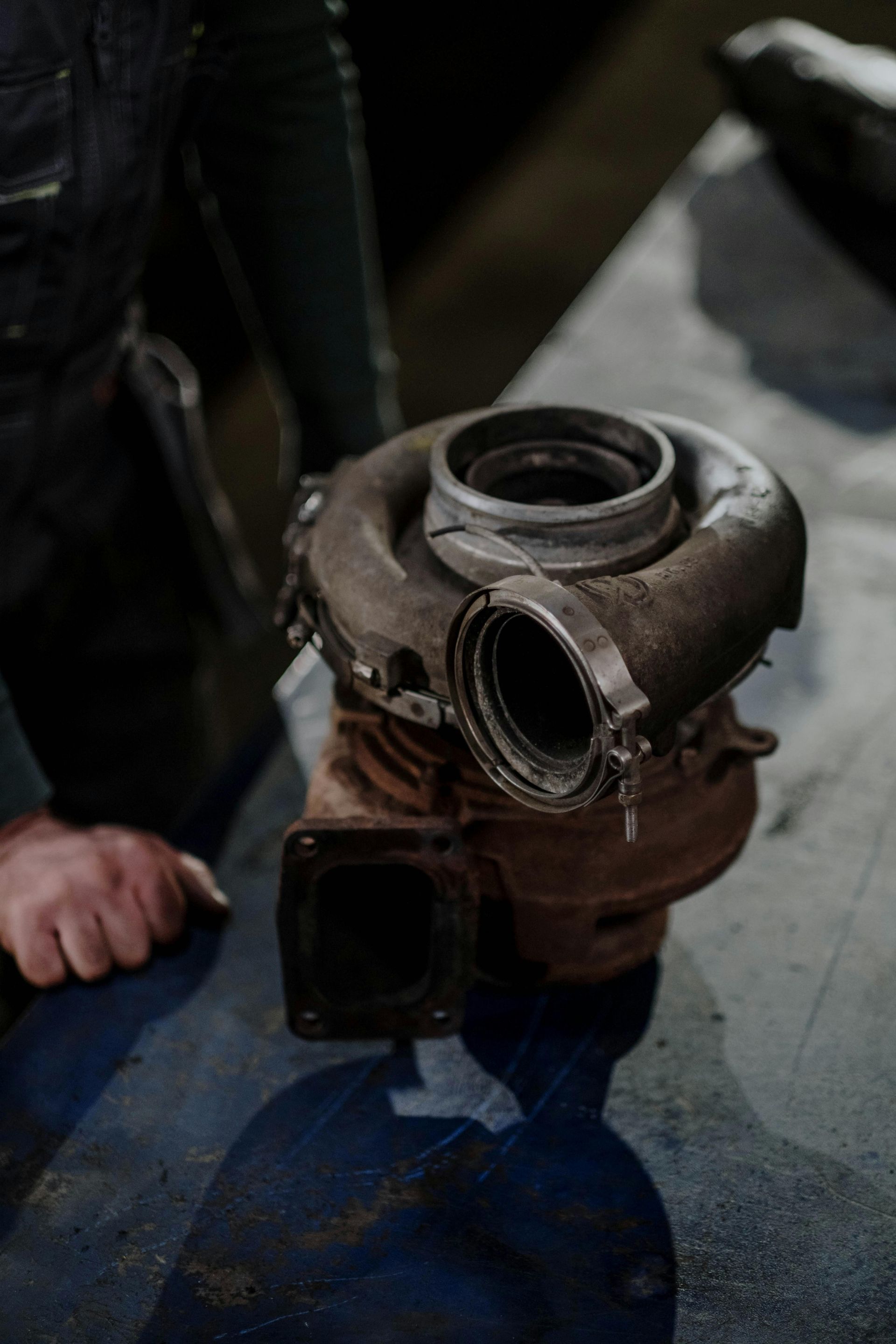How to Winterize Your Diesel Truck in the Northeast (Before It's Too Late)
How to Winterize Your Diesel Truck in the Northeast (Before It's Too Late)

When winter hits the Northeast, diesel truck owners know the drill: hard starts, gelled fuel, sluggish performance, and worst of all—breakdowns at the worst time. Whether you're running a fleet of work trucks in Camden County or daily driving your Powerstroke around Philadelphia, winterizing your diesel truck is essential.
At Kash Diesel & Auto in Sicklerville, NJ, we help owners prepare their Cummins, Duramax, and Powerstroke trucks for the harsh winter ahead. This guide walks you through everything you need to do before the first freeze.
Why Diesel Engines Struggle in Winter
Diesel engines are known for power and durability—but they don’t love the cold.
Here’s why diesel trucks are more vulnerable in winter than their gas counterparts:
- Diesel fuel can gel in freezing temps, clogging fuel lines and filters.
- Batteries lose cranking power in cold weather.
- Engine oil thickens, making it harder to turn over the motor.
- Glow plugs or grid heaters work overtime—and failure can mean no start.
- Moisture in air systems can freeze and damage components.
Preventative maintenance = fewer breakdowns and less downtime.
Diesel Winterization Checklist
Here’s a comprehensive diesel winter prep checklist from the experts at Kash Diesel:
1. Fuel System: Use Anti-Gel Additive + Keep It Full
- Add a
diesel fuel anti-gel treatment starting in late fall (especially #2 ULSD fuel).
- Keep the tank at
least half full to reduce condensation inside the tank.
- Consider switching to
winter-blend diesel if available locally.
- Replace fuel filters if they haven’t been changed recently.
Pro Tip: We recommend [Power Service Diesel Kleen Arctic Formula – https://powerservice.com/diesel-kleen/], especially for trucks operating in sub-20°F temperatures.
2. Test the Battery and Charging System
- Cold weather reduces battery efficiency by up to 50%.
- Load-test the battery—if it’s over
3 years old, consider replacement.
- Inspect and clean terminals to ensure strong connections.
- Check the alternator and charging voltage under load.
Kash Diesel performs full electrical testing as part of our winter prep package.
3. Inspect and Replace Glow Plugs or Grid Heaters
- Hard starting is often traced to failing
glow plugs (Ford Powerstroke) or
intake heaters (Cummins/Duramax).
- If your truck takes longer than usual to start, test glow plug resistance.
- Replace faulty components
before they leave you stranded.
4. Upgrade or Check Your Engine Oil
- Use
synthetic or winter-rated diesel oil (e.g., 5W-40 instead of 15W-40) for better cold cranking.
- Dirty or old oil thickens even faster, stressing the starter and battery.
- Make sure to check oil level and look for fuel dilution or leaks.
5. Cooling System Check
- Flush and refill coolant if it's over
3 years old.
- Test the coolant freeze point using a refractometer or test strips.
- Inspect radiator hoses for cracks, bulges, or leaks.
- Don’t forget the
block heater—test it by plugging it in and feeling for warmth.
We often find block heaters fail silently. If you rely on it, make sure it’s tested!
6. Check Tires and Air Pressure
- Cold temps reduce air pressure, which can cause poor traction and fuel economy.
- Switch to
all-terrain or winter-rated tires if your truck operates in snow or ice.
- Inspect tread depth and sidewalls for wear.
7. Drain Air Tanks (For Commercial/Fleet Vehicles)
- For trucks with air brake systems,
daily draining of air tanks is critical.
- Moisture that builds up in tanks can freeze and lead to brake failure or air system damage.
- Consider installing
air dryers or alcohol evaporators for added protection.
8. Emergency Kit Essentials
Prepare a winter survival kit:
- Jumper cables
- Blanket or insulated work gear
- Shovel
- Fuel additive
- Flashlight
- Spare gloves and socks
- Cell phone charger or power bank
Even with the best prep, winter can still throw curveballs. Be ready.
Fleet Owner? Winter Prep Is Even More Critical
If you manage a fleet of diesel vehicles in New Jersey, Pennsylvania, or Delaware, you know that one breakdown costs more than just repair—it costs lost time, rescheduled jobs, and missed deadlines.
At Kash Diesel, we offer:
- Fleet-wide winterization packages
- Battery and electrical system testing
- Block heater and glow plug service
- DEF system inspections (crystallization is common in winter)
- Tire and brake checks
- Digital service records to track winter readiness
FAQs – Winter Diesel Prep
How cold does it have to be for diesel to gel?
Diesel can begin to gel around 15°F, but poor-quality fuel or water in the system can cause issues above that.
Can I start my diesel truck without a block heater?
Yes, but starting will be harder. We recommend parking inside or using a block heater when temps drop below 20°F.
What happens if I ignore winter prep?
At best, you’ll have hard starts and poor performance. At worst, you'll face fuel system damage, emissions faults, or full engine failure.
Is winter oil really necessary?
Yes. Cold-rated oil improves startup lubrication, reduces engine wear, and helps prevent starter burnout.
Do you offer fleet-wide winter checks?
Absolutely. We customize winter prep based on your fleet size, usage, and routes. Call us to schedule a group inspection.
Don’t Wait—Get Winter-Ready at Kash Diesel
Whether you’re prepping for Northeast snowstorms or just want peace of mind during your daily commute, Kash Diesel & Auto has you covered.
Call (267) 978-6620 or visit us at 883 Jarvis Road, Sicklerville, NJ to schedule your diesel winter inspection.
We serve diesel drivers throughout New Jersey, Pennsylvania, and Delaware, and we know what it takes to keep your truck running strong—even when the temperature drops.


